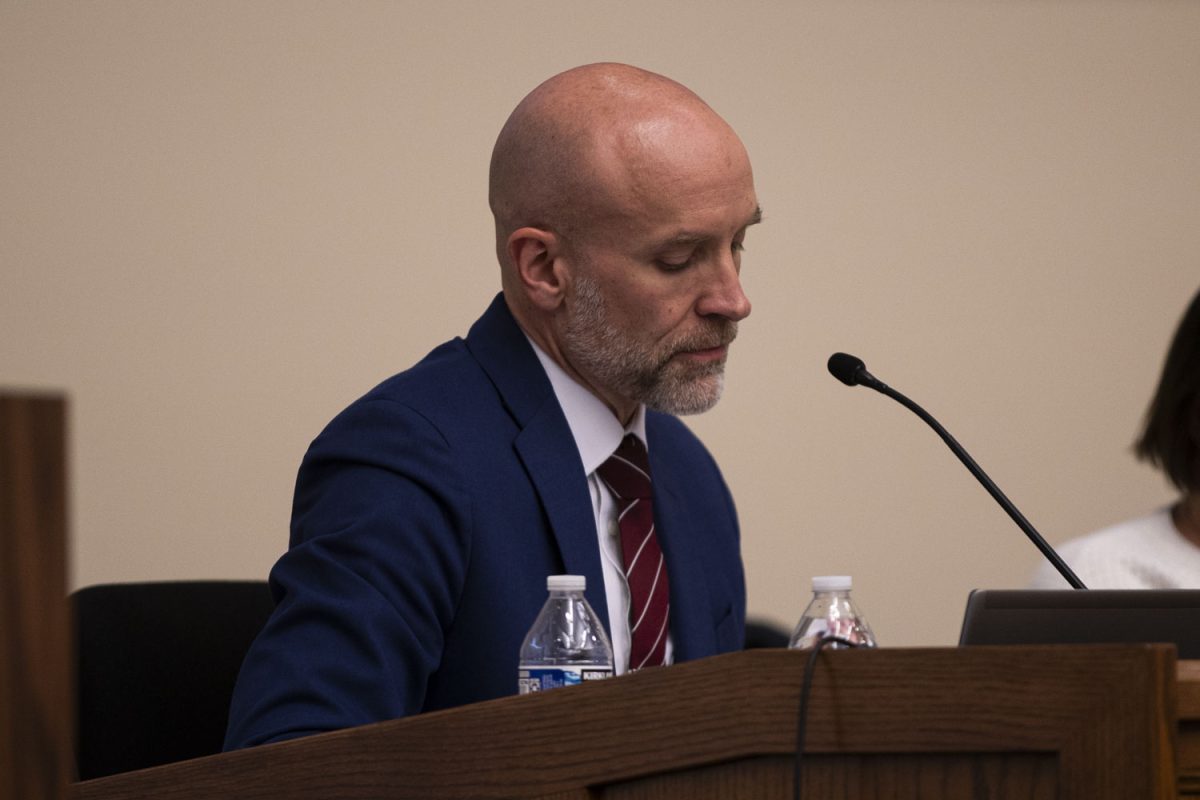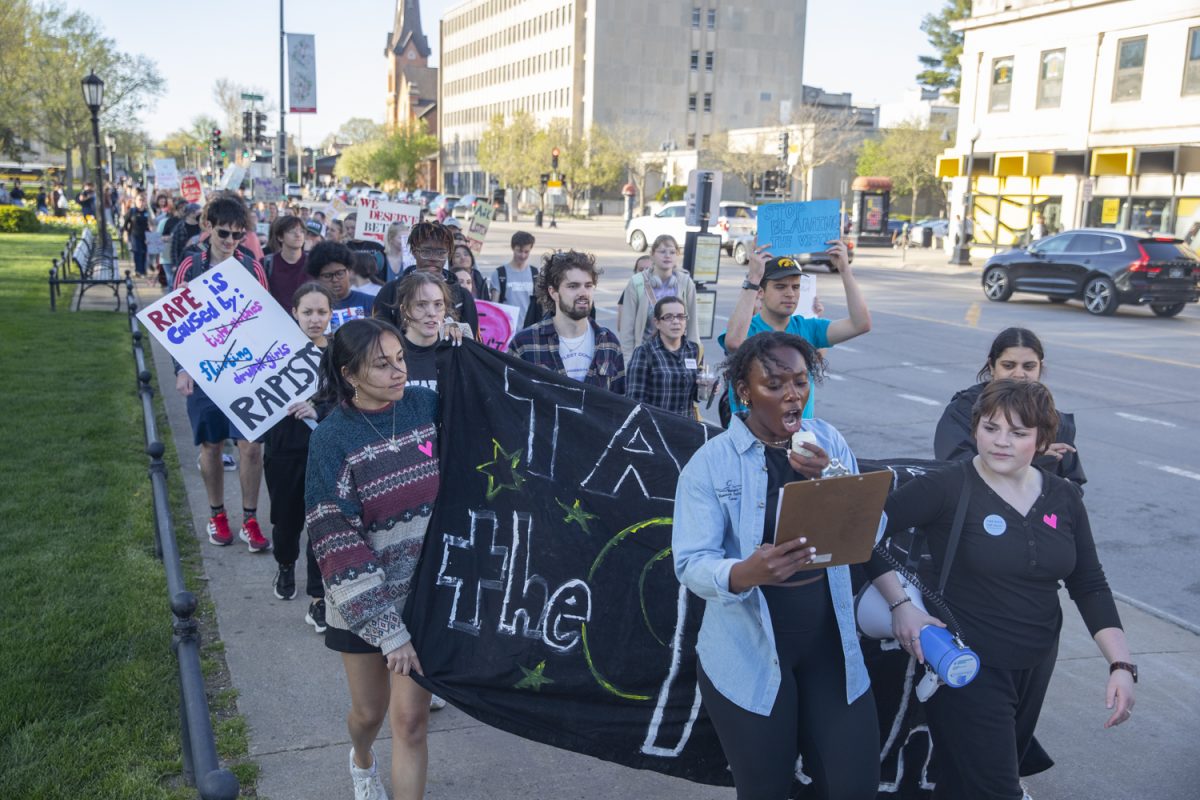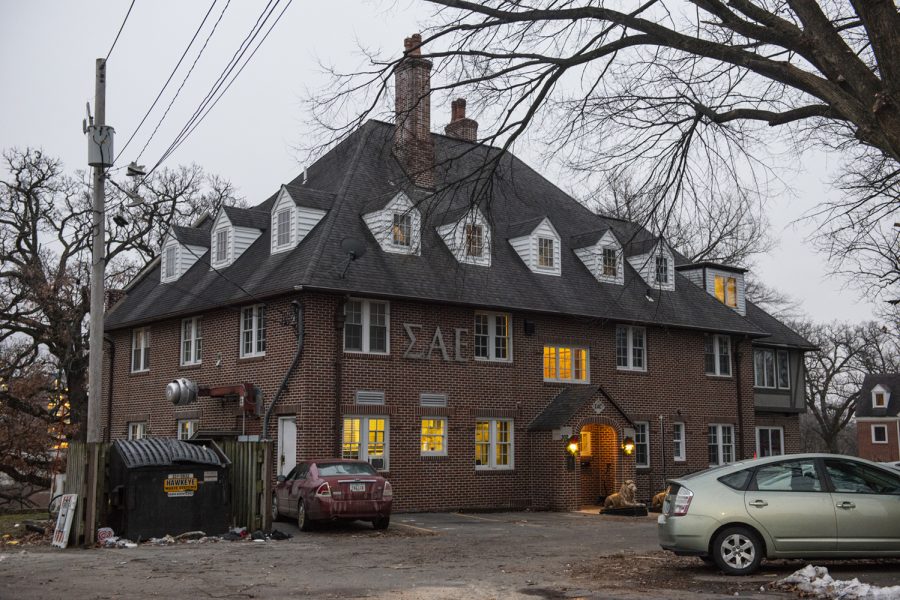“We’re going to be bursting at the seams in our classrooms.”
That is the worst-case scenario for Iowa City School District Superintendent Stephen Murley, who convened last week with local lawmakers and education administrators over the legislature’s funding impasse.
Originally, Democrats in the Senate had approved a spending increase of 4 percent for next year’s state education funding. But Republicans in the House stuck to their guns, unflinchingly insisting that a 1.25 percent increase is the most the state can afford.
Now, with the debate at a standstill, lawmakers need to decide by June 30, or the funding budget will remain stagnant with an increase of 0 percent.
“If we get 0, you’re essentially pulling a dozen teachers out of our class forever,” Murley said. “So would I rather win on principle and force them to 0, or would I rather have those dozen teachers? I’d rather have those dozen teachers.”
A 4 percent increase would increase spending by $212 million for next year, a 1.25 percent increase of approximately $90 million.
Last week, House Majority Leader, Rep. Kraig Paulsen, R-Hiawatha, said Democrats were playing politics with school funding and putting Iowa’s education system at risk.
“If [Democrats] are under the impression this is some sort of negotiation over a used car, they better get their priorities straight,” Paulsen said. “This is about schools and kids of Iowa. We’re serious when we put the 1.25 percentage increase … and we haven’t made any progress.”
Local Democrats in the House and Senate are hoping for at least a compromise at 2 percent, but many others in the Senate are vying for a 2.6 percent increase.
School districts across the state were forced to submit their budgets by April 15 without a solid knowledge of what their budgets will look like.
“Obviously, our schools are desperate, [saying] just give us a number,” Rep. Mary Mascher, D-Iowa City, said. “Help us get the most you can, but just give us a number so we can plan accordingly.”
Mascher said despite the frustration in the House over the debate, there appears to be no movement from Republican leadership.
A proposal floating around the Capitol would create a 1.25 percent increase, but add a one-time cash expenditure from the state’s reserve fund.
This idea appears to strike fear into lawmakers and business lobbyists who fear it would result in increased property taxes. But Mascher said these funds wouldn’t necessarily result in a tax hike and would provide schools with adequate funding.
“It doesn’t have to be an increase,” she said. “But anything that smells like it might be a property-tax increase, they oppose.”
Each time the state government dips into the reserve fund, officials tend to want to replace it, said Joe Cozier, the chief administrator at the Grant Wood Area Education Agency. He said property taxes wouldn’t go up right away, but over time, they could.
The Democrats appeared pessimistic and bitter about the failure to compromise.
“The [Republican] leadership [today] is so narrow-minded,” said Sen. Bob Dvorsky, D-Coralville. “It’s sad.”






